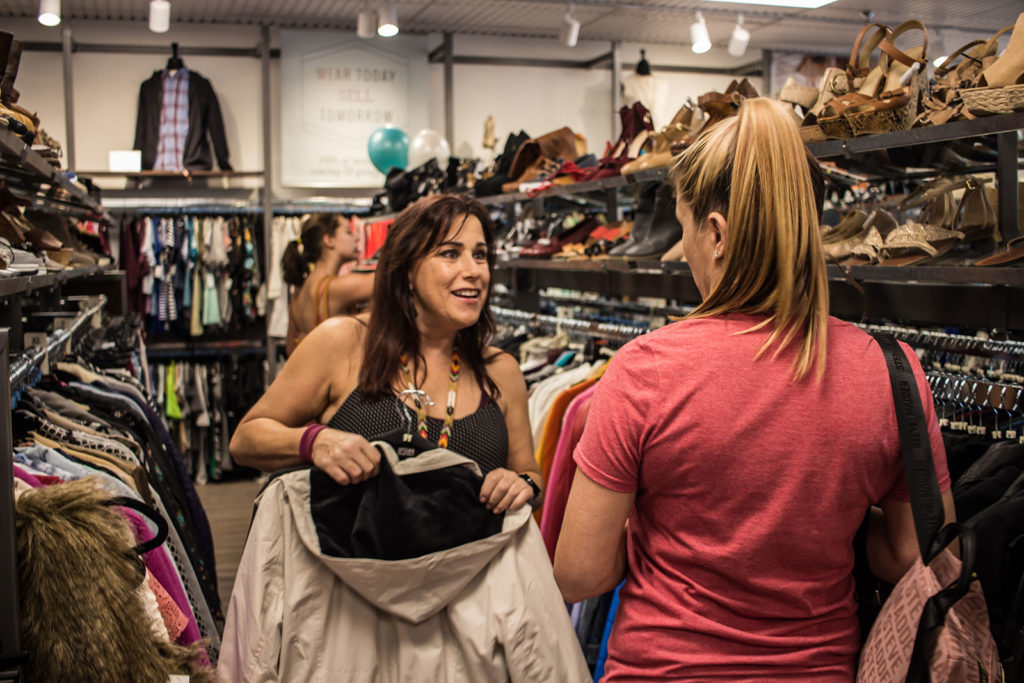Tighter consumer budgets and rising debt are funneling shoppers to affordable upscale resale businesses
When times are tough, people don’t stop shopping, but they do look to save money wherever they can. This is why the resale clothing franchise industry is vastly outperforming retail in 2020. According to CNBC, the resale clothing industry generated more than $64 billion this year – but this trend isn’t limited to one where a pandemic disrupted the entire economy. In 2019, ThredUp reports that resale grew 25 times faster than retail.

Helping young professionals, college and high school students save money on name brand clothes is exactly why Uptown Cheapskate is such a beloved brand in the communities we operate in. By providing a high-end, chic shopping experience that’s unlike anything in the resale clothing industry, plus providing high-quality, fashionable items at a fraction of the cost of retail, Uptown Cheapskate franchise owners own businesses that make a real difference.
“The secondhand clothing industry is exploding right now,” says Chelsea Sloan Carrol, Brand President of Uptown Cheapskate. “We’re seeing tremendous growth in terms of profitability and customer count in our stores, and we’re seeing a tremendous rise in the popularity of resale shopping.”
Owning a resale clothing franchise helps people save money
The average family spends $1,800 per year on clothes, which may not seem like a lot – but it’s more than you think. The U.S. Census Bureau reports the median income for a family is $59,039, and when the average American household carries $137,063 in debt, people are looking to save money wherever they can.
The majority of Uptown Cheapskate customers are millennials – this is also the generation with the most college debt. According to Business Insider, “student-loan debt reached a national total of $1.5 trillion in 2019, and Millennials in the graduating class of 2018 have an average student-loan debt of $29,800.”
This generation is saddled with debt at exactly the same time they’re trying to enter careers, find a partner in life – or as the Millennials call it, “adulting.” But adulting and looking good go hand in hand – and with a limited budget, Uptown Cheapskate is an invaluable resource.
“There used to be a stigma associated with secondhand shopping,” says Dave Martell, Director of Franchise Development with Uptown Cheapskate. “People used to brag about what they spent on an item, and after the Great Recession, that no longer made sense. People want to look great and save money at the same time, and our franchisees really understand that. We’ve created a business model that allows them to provide a truly meaningful service to their communities, and you can do enormously well for yourself at the same time.”
Bring Uptown Cheapskate to your community!
For in-depth details about the Uptown Cheapskate franchise opportunity, download our Free Franchise Opportunity Report. You also can learn more by visiting our research pages.





